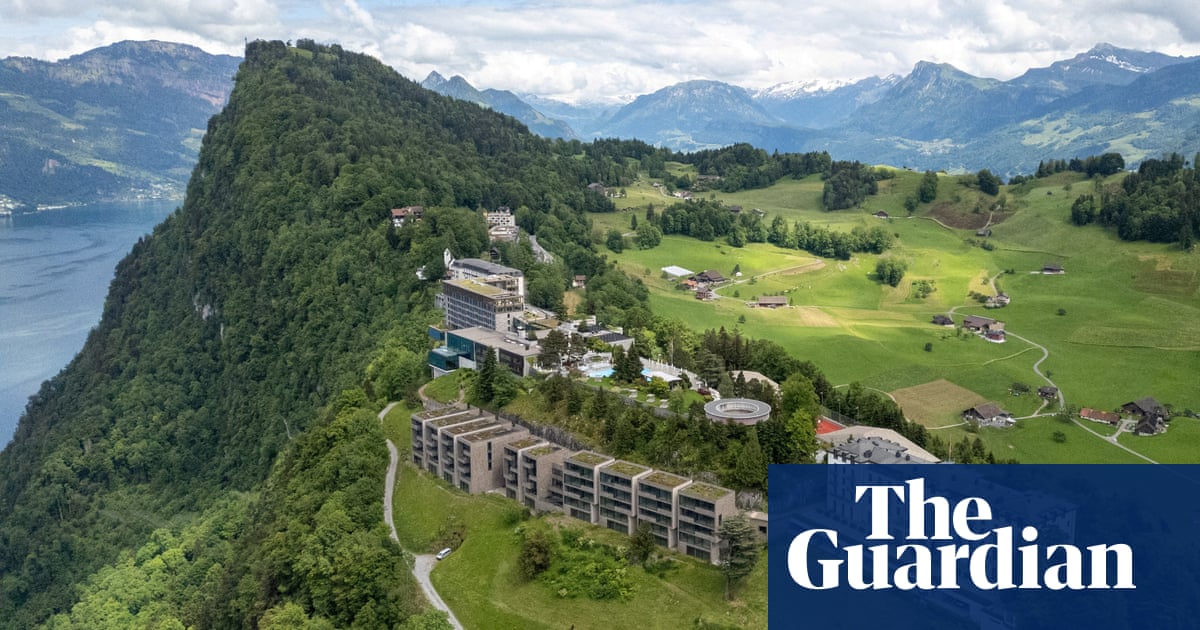More than 100 leaders, including the US vice-president, Kamala Harris, and the presidents or heads of the EU, South American, Middle East and Asian countries, will gather in Switzerland on Saturday for one of the most ambitious attempts yet to forge a peace plan for Ukraine.
The summit comes as G7 leaders gathering in Italy clinch a new deal for a €50bn loan for Ukraine, securitised through use of the windfall profits from the interest on Russian central bank assets frozen by the EU and other western nations after the 2022 invasion of Ukraine.
The two-day peace conference, which will take place at the luxury Bürgenstock resort outside Lucerne, will discuss Kyiv’s proposed 10-point plan to end the war along with three other themes: the nuclear threat, food security and humanitarian needs in Ukraine.
It follows the Russian president, Vladimir Putin, on Friday demanding that Kyiv cede more land, withdraw troops deeper inside its own country and drop its Nato bid in order for him to end his war in Ukraine – proposals that were rejected by Ukraine, the US and Nato.
A joint communique on Sunday is expected to centre on the importance of the UN principles on maintaining and respecting “sovereignty and territorial integrity”.
While this is not seen as advancing peace in itself, it is designed to “reduce the space for any unhelpful initiatives”, say those with knowledge of the conference.
This will be seen as a success for Volodymyr Zelenskiy who is aiming to build international support for his peace plan that includes a full withdrawal of Russian troops from Ukraine and return to its 1991 post-Soviet borders.
Organisers of the peace summit played down China’s decision not to attend, a move that prompted Zelenskiy to accuse Beijing of helping Moscow undermine the meeting, which China’s foreign ministry denied.
Kyiv had been pushing hard for a Chinese delegation to attend the summit to give the conference further legitimacy and drive a wedge between Moscow and Beijing.
There were also hopes that Saudi Arabia may attend after what Zelenskiy described as “productive and energetic” talks with the Saudi crown prince Mohammed bin Salman on Wednesday.
Moscow has dismissed the meeting as futile.
China, which has close ties to Russia, said it would not attend because the conference did not meet its requirements, including the participation of Russia.
That dozens of leaders will be in Switzerland at a time when Ukraine is on the back foot militarily, and with talk of war fatigue growing, is an impressive feat, senior US figures said.
“It’s rather remarkable that there’s 100 countries showing up to a peace summit at which the main instigator of that conflict is not participating,” said Max Bergmann, a former US state department official.
after newsletter promotion
“It’s a diplomatic masterstroke,” said Bergmann, who now heads the Europe, Russia and Eurasia Program at the Center for Strategic and International Studies.
William Courtney, a former US diplomat, called the Swiss outreach a “huge success”.
The summit follows several previous gatherings, including one in Saudi Arabia attended by 40 countries including China, which has been trying to enlist support for its own six-point peace plan.
As the summit approaches, China has intensified its outreach through meetings with visiting foreign dignitaries, phone calls and messages to foreign missions on China’s WeChat platform, diplomats told Reuters reporters.
But sources said organisers were not concerned, as there had been “no concretisation” of any Chinese diplomatic manoeuvres, with many global south countries, including Colombia, Chile, Argentina and Ecuador, attending on Saturday.
Others attending include Thailand, Singapore, the Philippines and Japan, while Malaysia and Cambodia, which have close ties to China, are not thought to be going.

